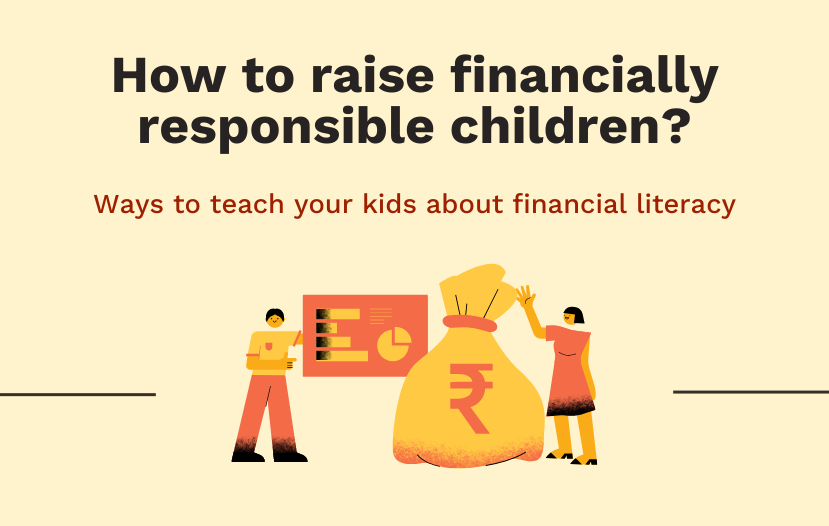
Introduction
Ancient Greek playwright Sophocles wrote, “Wisdom outweighs any wealth.”
While this statement holds power, it’s also robust that wisdom can play an essential role in achieving wealth—particularly when it comes to managing your finances and credit.
Learning starts at a young age, and children begin to adapt and embrace parts of their personality from a very young age. So why not teach them to be financially responsible at a young age? Raising and teaching children to be financially responsible from a young age can go a long way in deciding the decisions they make as adults.
Even if you have enough security for your children, it is extremely important that they learn to value money, save it and invest rightfully to grow and sustain their wealth.
No school or college imparts financial knowledge, so the responsibility is squarely on parents to mold their child’s financial future. We are here with a few tips to make that easy for you:
Healthy savings habits
Saving is an important aspect when it comes to creating a financially secure future. Saving money is both a task and a responsibility for kids. Piggy banks are a great way to introduce money literacy and instill the habit of depositing and saving. You need to make your child aware of the disciplined way of saving by not letting him open the piggy bank until it is full. This would make your child waste less money and make them realize that the saved money will be used up in the future in case of an emergency.
Get into discussions regarding money.
Remove the stigma associated with discussing money with your children, but do not do so in an "I'm so stressed about bills" manner. Instead, express how happy you are about a deal or that you have enough money for a trip. Concentrate on employing words and phrases related to money such as "save for a rainy day," "share with others," and enjoy if you have money saved up. Of course, they are still young for in-depth financial lessons but you can begin by teaching them essentials such as earning, spending, and saving.
Open a savings account for your kids.
The majority of financial institutions offer distinct accounts for kids that can be used to teach them about savings. Being familiar with their finances through operating a Savings Bank Account from childhood can make your child a financially responsible adult in the future. This will also help your child to learn more about banking. They can pick up skills such as check depositing, online banking, and physical bank withdrawals.
Bring them along as you purchase.
Talk to your kids about prices, doing product research, and opportunity costs. This could help them learn about the value of money and encourage them to make wiser spending choices.
Have them make a purchase and when they check out: Give them cash to use rather than plastic, which is less substantial, then get your change back. They will begin to realize that items cost money and become conscious of their own responsibility for purchases.
Allow financial freedom
Children long for the freedom to handle their finances on their own. They find it exhilarating to consider being able to independently manage a tiny sum. Start by granting them a modest monthly allowance and instructing them to budget accordingly. Giving a child an allowance for a day, a week, or even a month offers them the freedom to manage their own finances, make mistakes that are manageable, and practice good money management.
Lead by example
Your influence over your child is considerable; they frequently model their behaviour after you. If parents have the habit of saving, kids will also have the same habit. You can set up a saving container in your home and every member of the house can make his/her contribution to fill that container with money. This habit will make the children learn the importance of savings. When a child observes how well-organized their parents are when it comes to handling the family's finances, the lesson gets imprinted in their minds.
Final Words
Children learn by observing. The greatest way to promote financial prudence is to model them yourself and develop open lines of communication about money early in life.